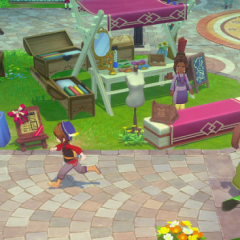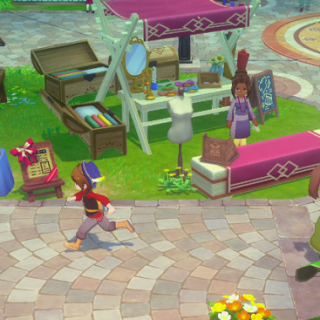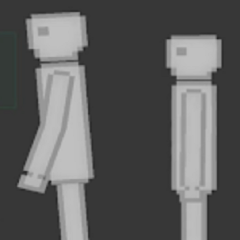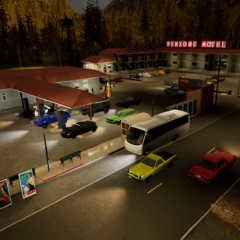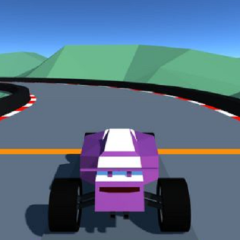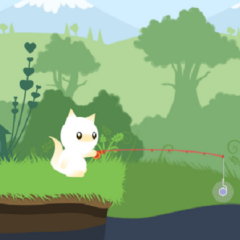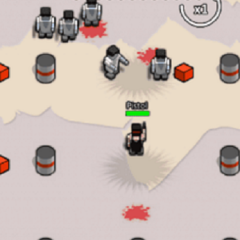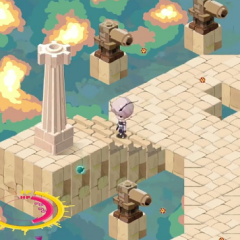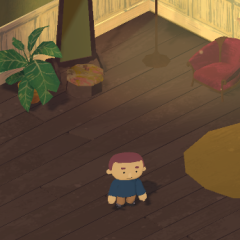Story of Seasons: Grand Bazaar is a farming simulation game where the central goal is to restore life to the famous marketplace of Zephyr Town. The bazaar once thrived with energy, but now it struggles, and the player’s task is to rebuild it through farming, crafting, and smart selling. Unlike other titles in the series that emphasize farming alone, this entry puts the bazaar at the heart of the gameplay, giving every crop and item a direct connection to how the town grows.
Daily Farming And Preparation
Life on the farm forms the foundation of Story of Seasons: Grand Bazaar. Each day, you prepare fields, water crops, and take care of animals that produce resources like milk, eggs, and wool. These raw materials are the starting point for creating goods to sell at the weekly event. Windmills in the town allow you to process items into more valuable products, such as turning wheat into flour or milk into butter. Careful management of time and stamina ensures that your farm runs smoothly and is ready for the weekend market.
The Weekly Bazaar
The highlight of the game is the bazaar itself, held once a week. You set up your stall, arrange your goods, and compete with other sellers to attract customers. Shoppers respond to how you display items, how actively you engage them, and which products you choose to prioritize. Success at the bazaar directly improves the town, making it livelier and unlocking new opportunities.
Some of the key elements of the bazaar include:
· Deciding which goods to sell given limited space
· Using windmills to upgrade products for better profit
· Expanding and decorating your stall to draw attention
· Managing customer flow during morning and afternoon shifts
· Growing your reputation as sales increase
These systems add variety and strategy to what might otherwise be simple selling.
Planning And Player Decisions
Strategic choices play a large role in Story of Seasons: Grand Bazaar. Since the bazaar happens weekly, your farm work must align with the schedule to maximize output. Deciding whether to focus on quick-selling crops or on slower, high-value goods changes how you prepare for the market. Building relationships with townspeople also matters, as friendships unlock events, benefits, and deeper connections. The wind system adds another layer, since processing times depend on wind strength, forcing you to adapt plans regularly.
Replayability And Unique Rhythm
The replay value of Story of Seasons: Grand Bazaar lies in the many ways to approach farming and selling. Each playthrough can emphasize different strategies—some players might aim to refine a few luxury items, while others experiment with wide variety. The interactions with townsfolk, the changing pace of seasons, and the evolving bazaar keep the experience fresh. By merging farm simulation with an active marketplace, the game creates a rhythm of preparation and payoff that distinguishes it from other entries in the series and keeps players engaged over the long term.

